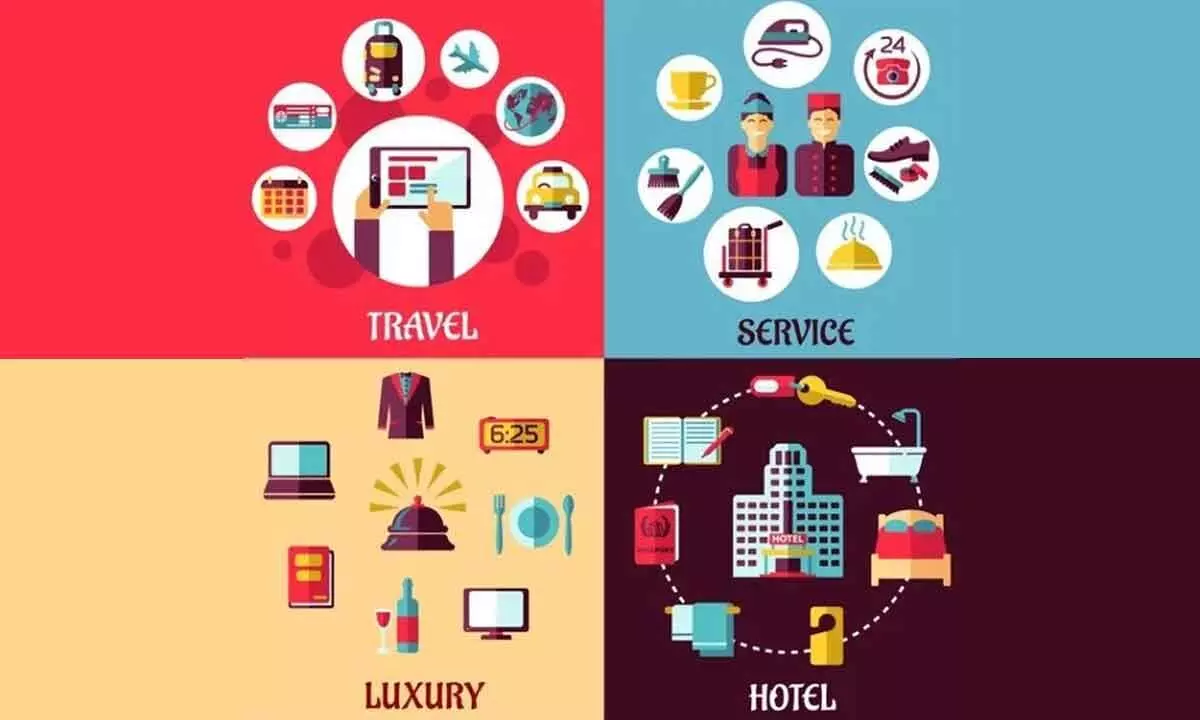Consumer sentiments and the thriving face of hospitality industry
Customers are looking for businesses committed to protecting the environment with sustainable practices
image for illustrative purpose

RevPAR is expected to remain at a 20-25% discount to the FY2008 peak. Consistent improvement in consumer sentiments despite the inflationary environment, stable corporate performance and domestic air passenger traffic inching above pre-Covid levels augur well for travel and hotel demand. The demand recovery has been strong in the last one year, and ICRA anticipates it to continue in FY2024 as well
The hospitality industry is constantly evolving, and one of the most significant one is the changing face of the customer. They are becoming increasingly demanding, more discerning and more empowered than ever before.
Here are some of the key trends that are shaping the changing face of the customer in the hospitality world:
The rise of millennials and Gen Z: Millennials and Gen Z are now the largest generation of travellers and they have different expectations compared to the previous generations. They are more likely to be price-conscious apart from being more demanding when it comes to experiences. They are more likely to be eco-conscious and want to support sustainable businesses.
Growth of mobile technology: Mobile technology is changing the way people travel and stay. Customers are now using their smartphones to book reservations, check in and out of hotels and order food and drinks. They are also using mobile apps to get information about their surroundings and to connect with other travellers.
Increasing diversity of the global customer base: The world is becoming more interconnected, and the hospitality industry is reflecting this trend. Hotels and restaurants are now catering to a more diverse customer base, with guests from all over the world. This means that businesses need to be more aware of cultural differences and to be able to cater to the needs of a variety of guests.
Importance of sustainability: Sustainability is becoming increasingly important to customers. They are looking for businesses that are committed to protecting the environment and using sustainable practices. This means that businesses need to be transparent about their sustainability efforts and to make sure that their operations are as sustainable as possible.
ICRA estimates pan-India premium hotel occupancy at ~70-72% in FY2024, after recovering to 68-70% in FY2023. Pan-India premium hotel average room rates (ARRs) are expected to be at ~Rs. 6,000-6,200 in FY2024. While the occupancy is expected to be at decadal highs, the RevPAR is expected to remain at a 20-25% discount to the FY2008 peak.
Consistent improvement in consumer sentiments despite the inflationary environment, stable corporate performance and domestic air passenger traffic inching above pre-Covid levels augur well for travel and hotel demand. The demand recovery has been strong in the last one year, and ICRA anticipates it to continue in FY2024 as well. Sustenance of domestic leisure travel, higher bookings from meetings, incentives, conferences, and exhibitions (MICE), and business travel, along with an increase in foreign tourist arrivals (FTAs), would support demand.
The industry is likely to benefit from specific events like the G20 summit and the ICC World Cup 2023.
ICRA estimates a 13-15% revenue growth for the Indian hotel industry in FY2024, notwithstanding the potential impact on demand from any exogenous shocks. Sustenance of a large part of the cost-rationalisation measures undertaken during the Covid period, along with operating leverage benefits, resulted in a sharp expansion in margins. ICRA’s sample set, comprising 12 large hotel companies, reported operating margins of 32% for FY2023, against 20-22% pre-Covid.
While there could be some moderation in margins from these levels with an increase in some cost-heads, including refurbishment/maintenance, the margins are still expected to be higher than the pre-Covid levels over the medium term. The staff-to-room ratio remains below pre-Covid levels and is expected to continue to be so going forward as well. Accordingly, ICRA has a positive business outlook on the Indian hotel industry.
Bengaluru and Pune are likely to be laggards compared to other key cities. While the G20 summit would support occupancy across cities in FY2024, improved economic activity and business associations stemming from these meetings are likely to translate into incremental demand for hotels over the medium term. ICRA expects an improving trend in ARRs as well across markets in FY2024, driven by healthy occupancy. Further, mid-scale hotels have also witnessed traction across cities and are likely to continue reporting healthy ARRs and occupancy in FY2024.
Adaptability is the buzzword-Offering personalised experiences: Customers want to feel like they are special and they want their experiences to be tailored to their individual needs and preferences. Businesses can use data and technology to personalize the guest experience, from the moment they book a reservation to the moment they check out.
The hospitality industry is facing a number of challenges, but it is also an industry with a lot of potential. By adapting to the changing face of the customer, businesses can thrive in this ever-evolving industry.

